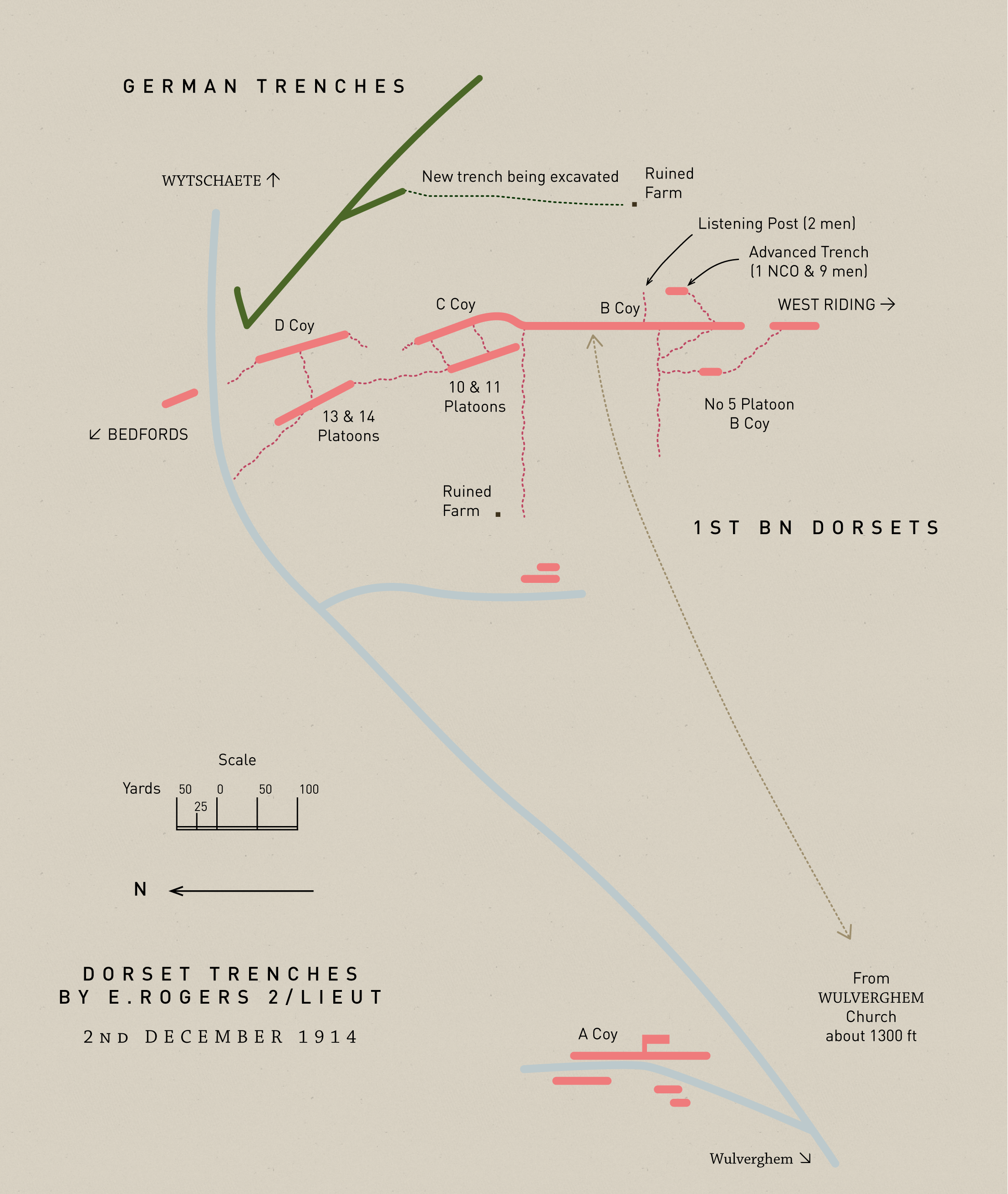29th December 1914
Envelope addressed to Miss Crawshaw, 29 etc franked APO 13 De 14, censor 1611 (E Rogers) – written in ink and on back “gone to Camberwell”
Letter dated 29-12-14Dear Till
Just a few lines to let you know how I got on at Xmas and what sort of time I had, well I must say I didn’t enjoy myself at all, for what with the weather and being in the trenches it just about put paid to the bill but I am getting on alright and still in the pink. The weather out here is miserable what with the rain and mud. Did you receive my letter with the Xmas card in I except you have by now? Till I received a Xmas card from Dolly which was very good of her and I sent her a PC so you can let me know what she says, when next you hear from her. How did you spend your time Xmas don’t forget to let me know?
Now Till I expect you have read about the gift we received from Princess Mary but I am unable to send it home to you as I have not got any rent now I have told you about me leaving you 6d per day for yourself, now dear I want to know if you could send me out some money so that I could register it home, so don’t forget to let me know what you can do, and if you send it in coin not in paper, now I think this is all for now so will conclude hoping this finds you in the best of health.
Love Bid xxx
After a quiet morning the Dorsets left their trenches and at 2.30pm marched to billets in Bailleul, arriving at about 6.50pm. They left behind some men on details and C Company who were relieved a little later on at around 8pm by the West Riding Regiment. C Company arrived later that evening.
Frank probably wrote home from his new billets. I imagine the trenches were far too wet in which to do any writing other than crossing out some words on a Field Post Card. Again, the letter is censored by E. Rogers. I’ve still had no luck finding out anything more about the life of this Dorsetshire officer.
Frank’s opinion of Christmas in the trenches says it all. To top it off, he now needs money to send his Christmas gift from Princess Mary back home. According to the Imperial War Museum, a great many troops did this. His promise of giving Mabel money from his pay continues, but it appears he needs a seed fund to start the ball rolling.
The Princess Mary Gift Fund was a venture started back in October 1914. Its ambitious and commendable aim was to provide every overseas person wearing the King’s uniform with a brass box containing a variety of objects depending on the recipient: From cigarettes, pipe and tinder to smokers, to bullet pen and sweets for the non-smokers, chocolate for nurses and sweets and spices for Indian troops. A card was included wishing everyone a “Victorious New Year”.
Sadly, there’s no indication that this box survived the intervening years, but below is a photograph of a sample box with cigarettes in it.

And if you’ve ever want to make a tiny replica of this iconic gift then knock your tiny socks off.
Bailleul is a town in France archly described by Gleichen as “with its rather quaint old brick fourteenth-century church, porched à la Louis Quinze, was tolerable rather than admirable”. The town was an important staging post for British troops throughout the war. There’s a far better written account of its role here than I could manage.

The 15th Brigade had moved en masse into Divisional reserve. Gleichen was off to London on leave and was temporily replaced as CO by Lieutenant-Colonel Charles Richard Jebb Griffith, the Commanding Officer of the 1st Bn Bedfords, whom Gleichen rates as the “trustiest of C.O.’s, who had been under heavier fire than almost any one in the Brigade, yet never touched”. You can read more about this old war horse on the Bedfords’ website.
